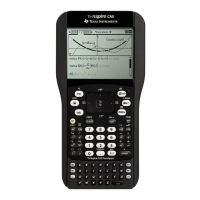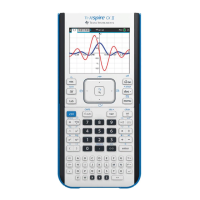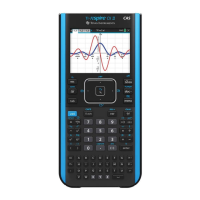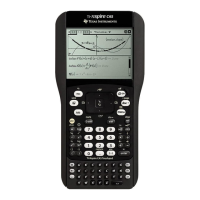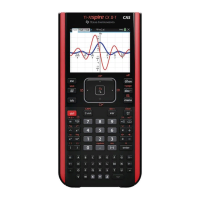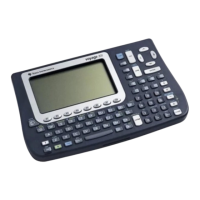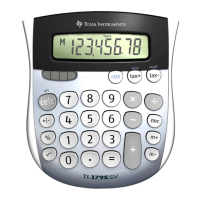getMode()
Catalog >
If you save the settings with getMode(0) →
var, you can use setMode(var) in a function
or program to temporarily restore the
settings within the execution of the
function or program only. See setMode(),
page 158.
Mode
Name
Mode
Integer Setting Integers
Display
Digits
1
1=Float, 2=Float1, 3=Float2, 4=Float3, 5=Float4, 6=Float5,
7=Float6, 8=Float7, 9=Float8, 10=Float9, 11=Float10,
12=Float11, 13=Float12, 14=Fix0, 15=Fix1, 16=Fix2,
17=Fix3, 18=Fix4, 19=Fix5, 20=Fix6, 21=Fix7, 22=Fix8,
23=Fix9, 24=Fix10, 25=Fix11, 26=Fix12
Angle
2
1=Radian, 2=Degree, 3=Gradian
Exponential
Format
3
1=Normal, 2=Scientific, 3=Engineering
Real or
Complex
4
1=Real, 2=Rectangular, 3=Polar
Auto or
Approx.
5
1=Auto, 2=Approximate, 3=Exact
Vector
Format
6
1=Rectangular, 2=Cylindrical, 3=Spherical
Base
7
1=Decimal, 2=Hex, 3=Binary
Unit
system
8
1=SI, 2=Eng/US
getNum()
Catalog >
getNum(Expr1) ⇒ expression
Transforms the argument into an
expression having a reduced common
denominator, and then returns its
numerator.
GetStr Hub Menu
GetStr [promptString,] var[, statusVar]
GetStr [promptString,] func(arg1, ...argn)
For examples, see Get.
Alphabetical Listing 83
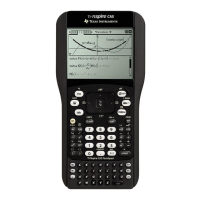
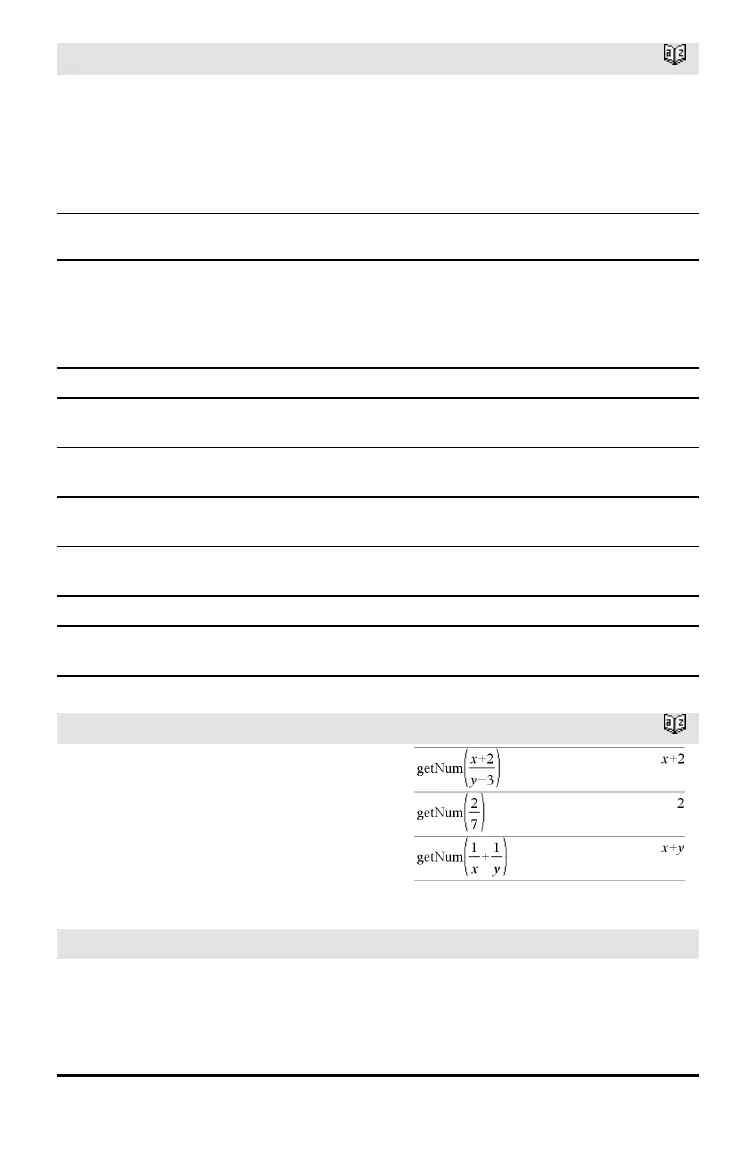